British Leyland began selling the Jaguar XJ in 1968, and production continued through multiple platform generations (and corporate owners) until just a few years ago. The original XJ was facelifted twice, in 1973 and 1979, with sales of the six-cylinder version extending into 1987 (Series 3 cars with V12s were built through 1992). Production numbers were never very high, but these cars proved popular in the United States and I still find them every so often during my junkyard travels. Here’s a Series 2 XJ6 saloon that showed up in a Denver-area self-service yard last winter.
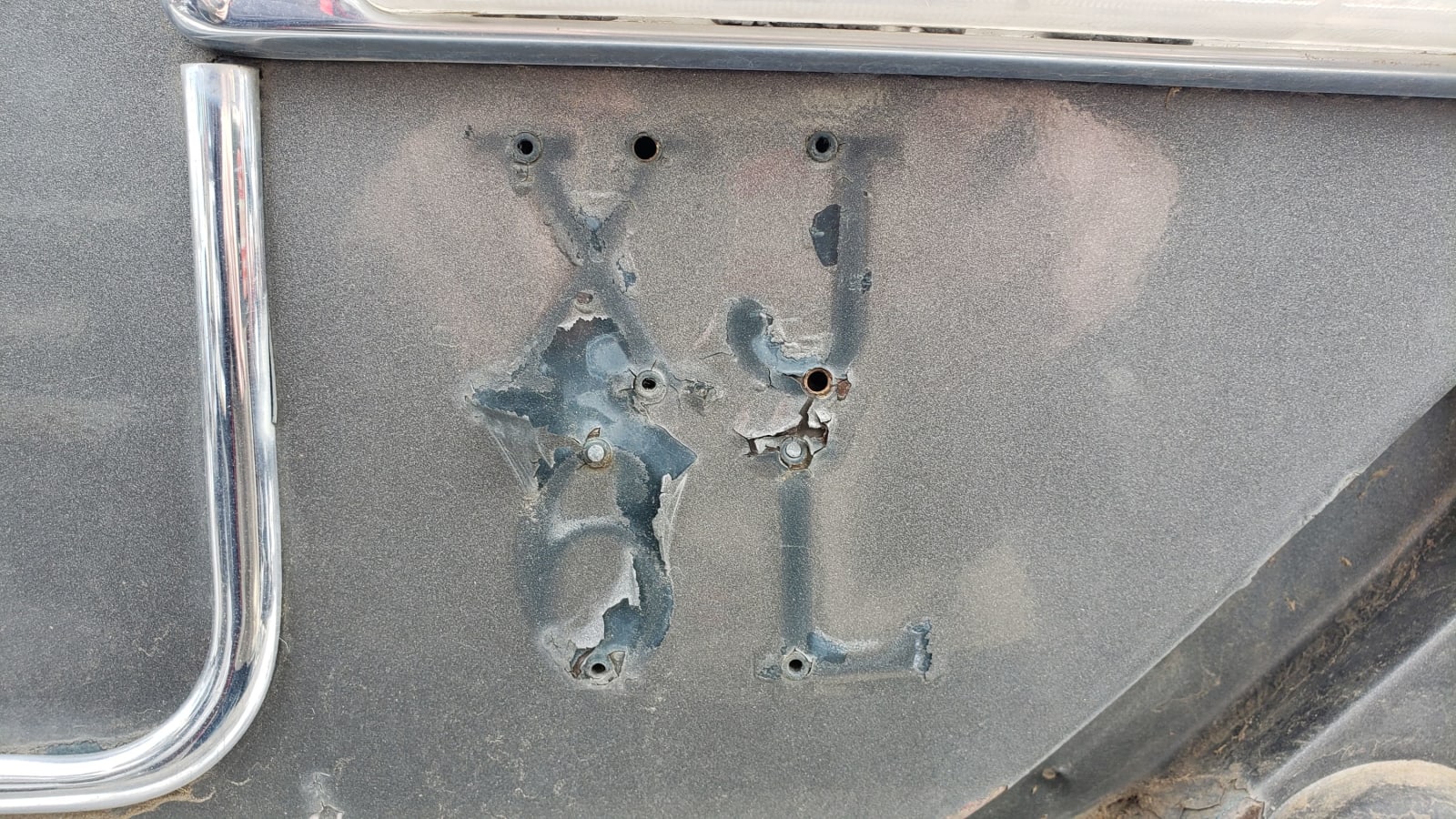
Jaguar introduced a long-wheelbase version of the XJ saloon for 1972, giving it a four-inch stretch in order to better compete against the planned Rover P8. Since Rover was a fellow British Leyland brand, this was like Buick pouring big resources into crushing a threat from Oldsmobile, to the detriment of the overall company. In any case, the long-wheelbase saloons proved so successful that the short-wheelbase four-doors got the axe a couple of years later (the coupes stayed on the shorter chassis). Jaguar continued to add the “L” badging to the saloons for quite a while after that, presumably because it looked classy.
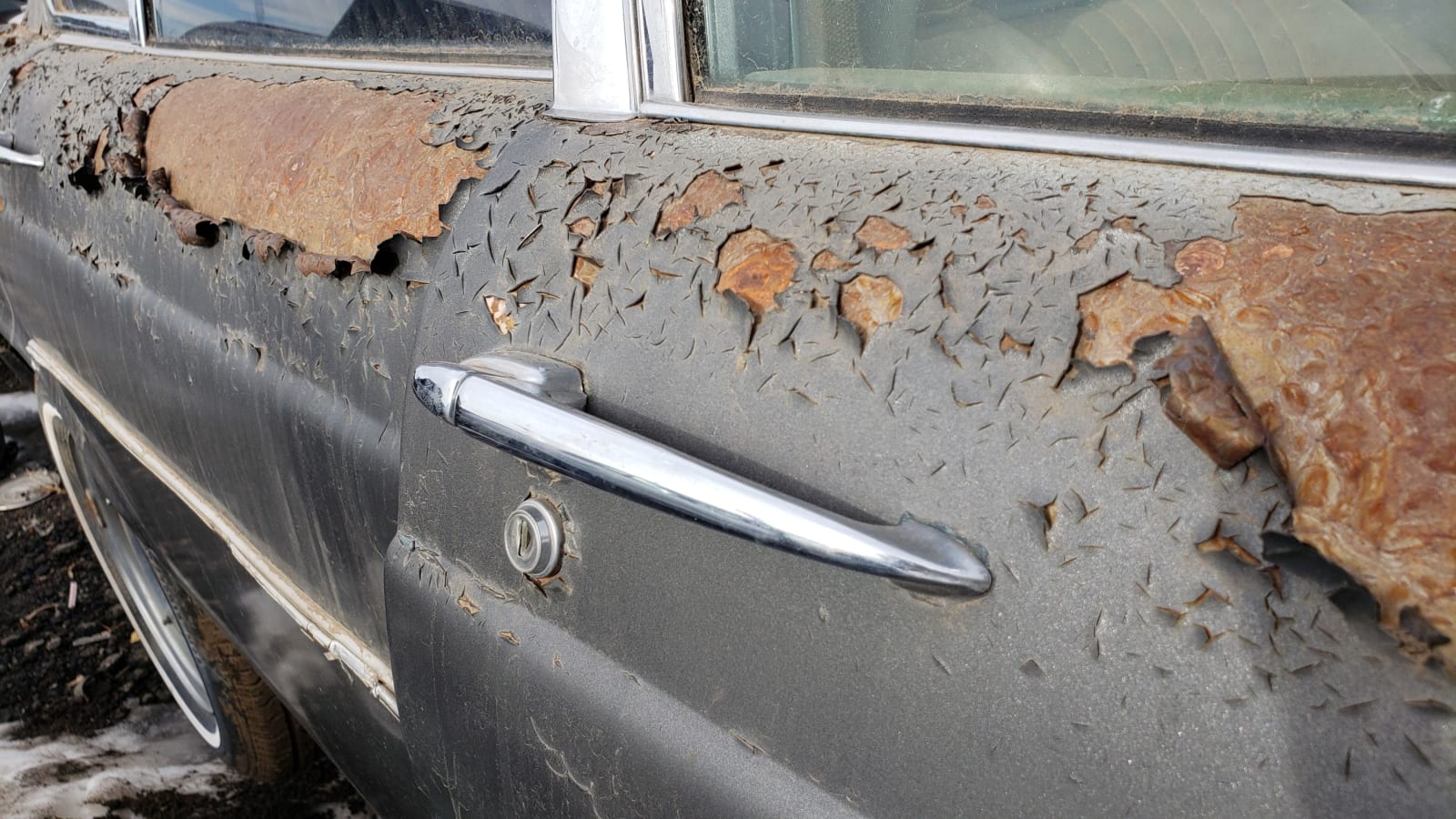
The paint on all the upper body surfaces has been nuked down to the steel by the relentless High Plains sun, so we can assume that this car spent a decade or three sitting parked outside.
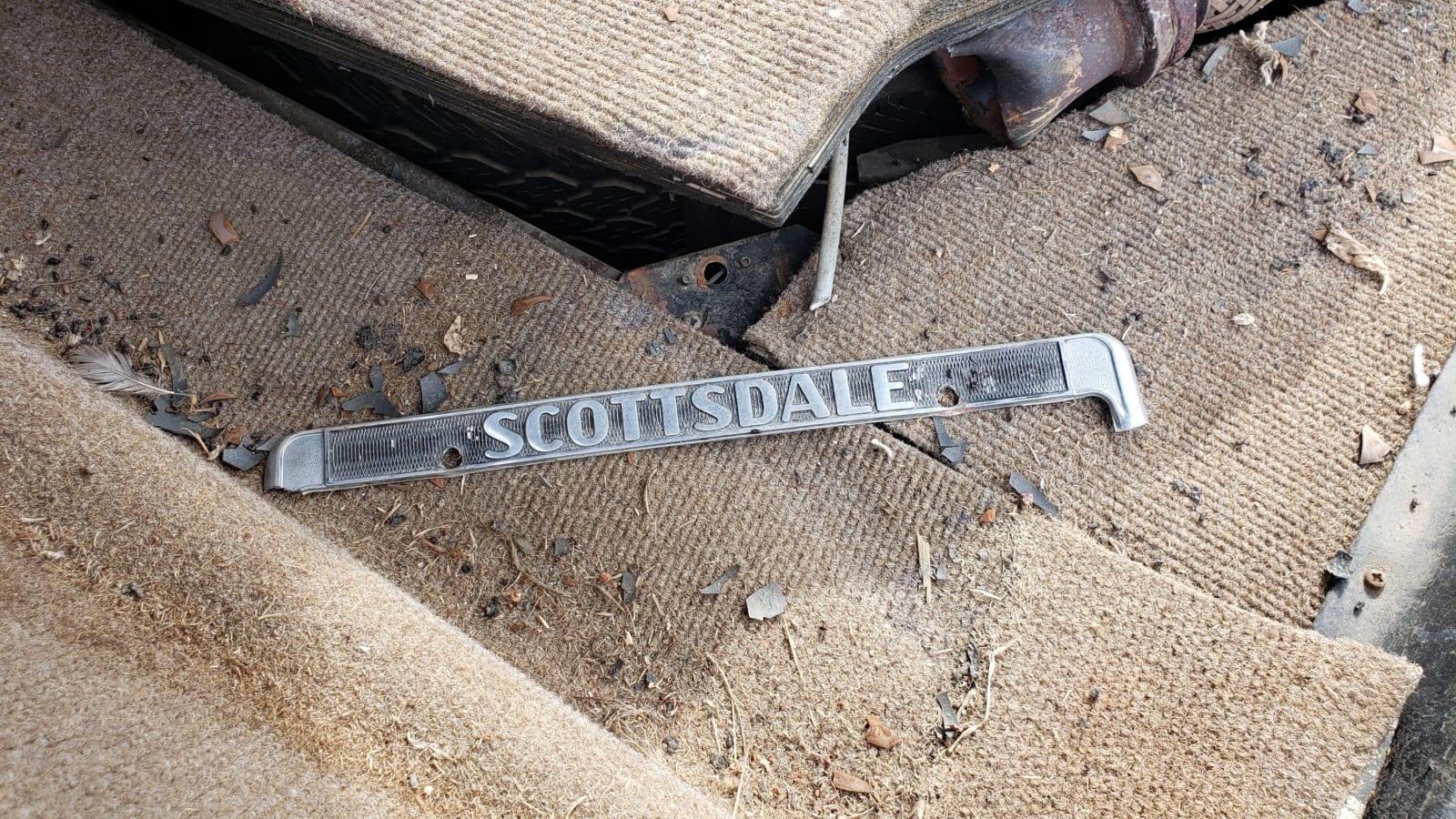
It may have started out in Arizona, one of the few places with fiercer sunlight than eastern Colorado.
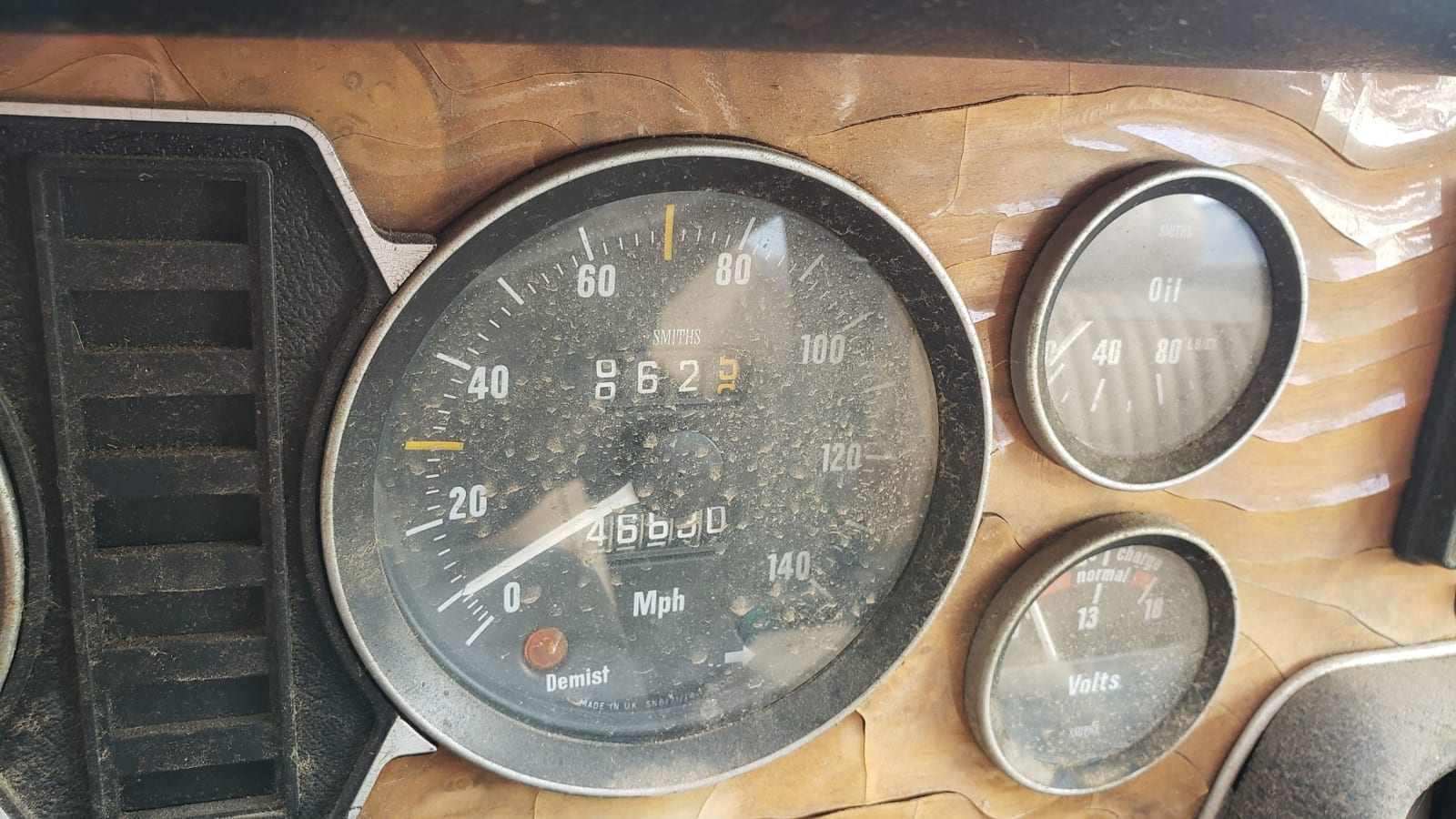
Is it possible that it really turned a mere 46,630 miles during its life? With most cars of this vintage, I’d assume that the five-digit odometer has been turned over once or twice. With a Jaguar and its troublesome electrical components made by the Prince of Darkness, however, that’s not such a sure bet. To own a car like this, you need to be willing and able to give it the money and work it requires to stay on the road; not many are suited to this responsibility.
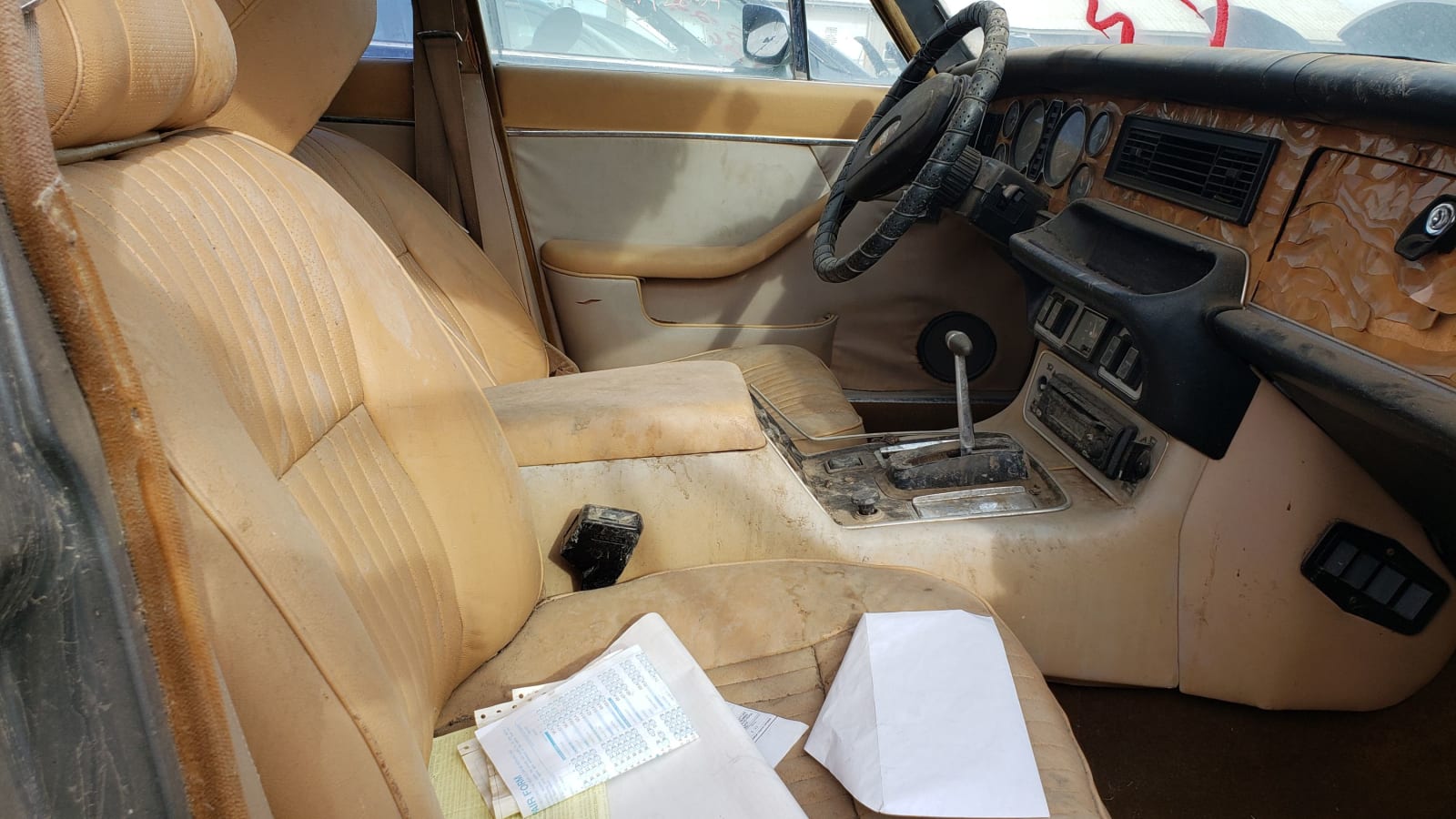
The interior looks to have been in very nice condition before the car got parked in a field somewhere.
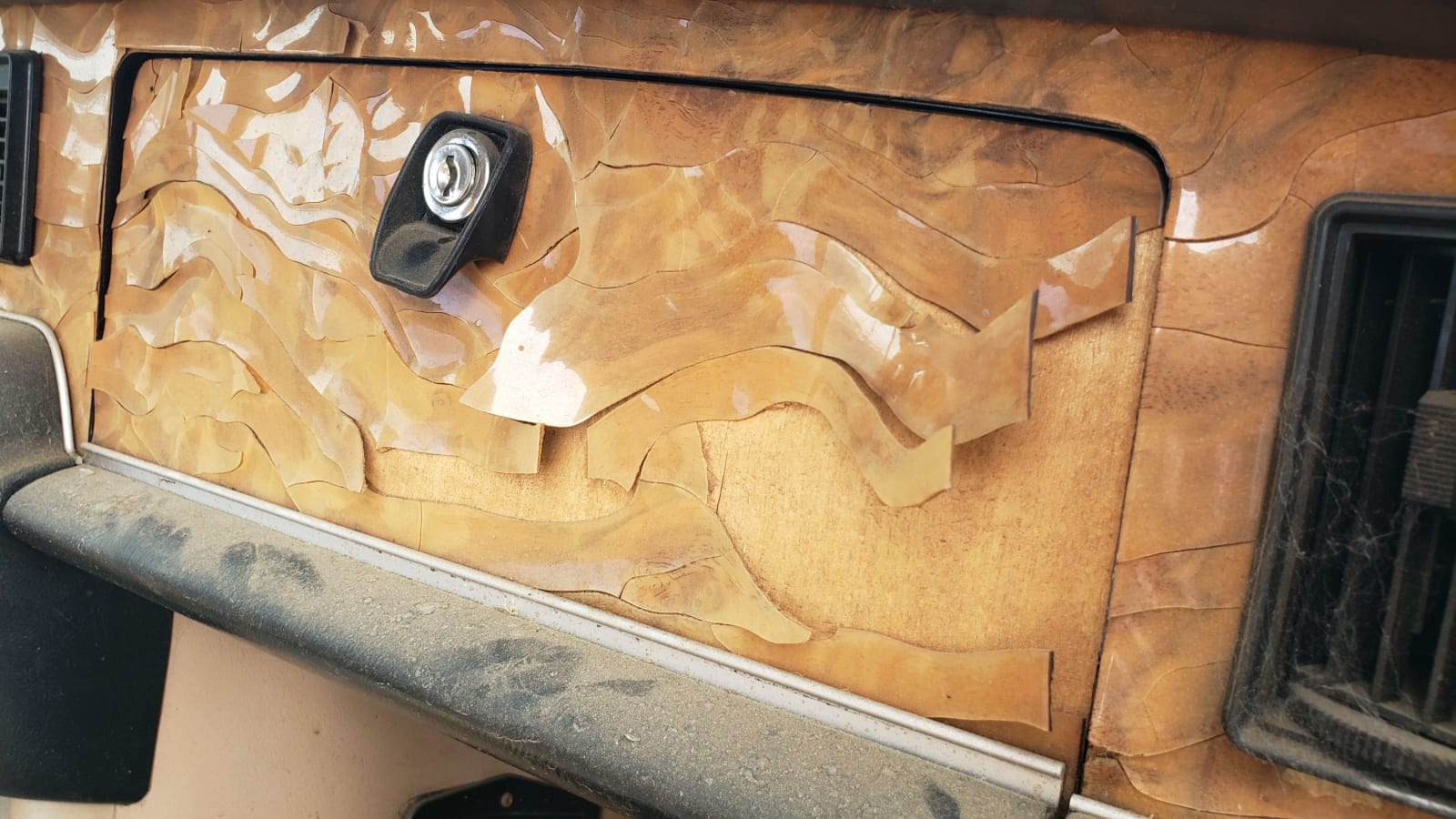
The wood interior trim has seen better days.
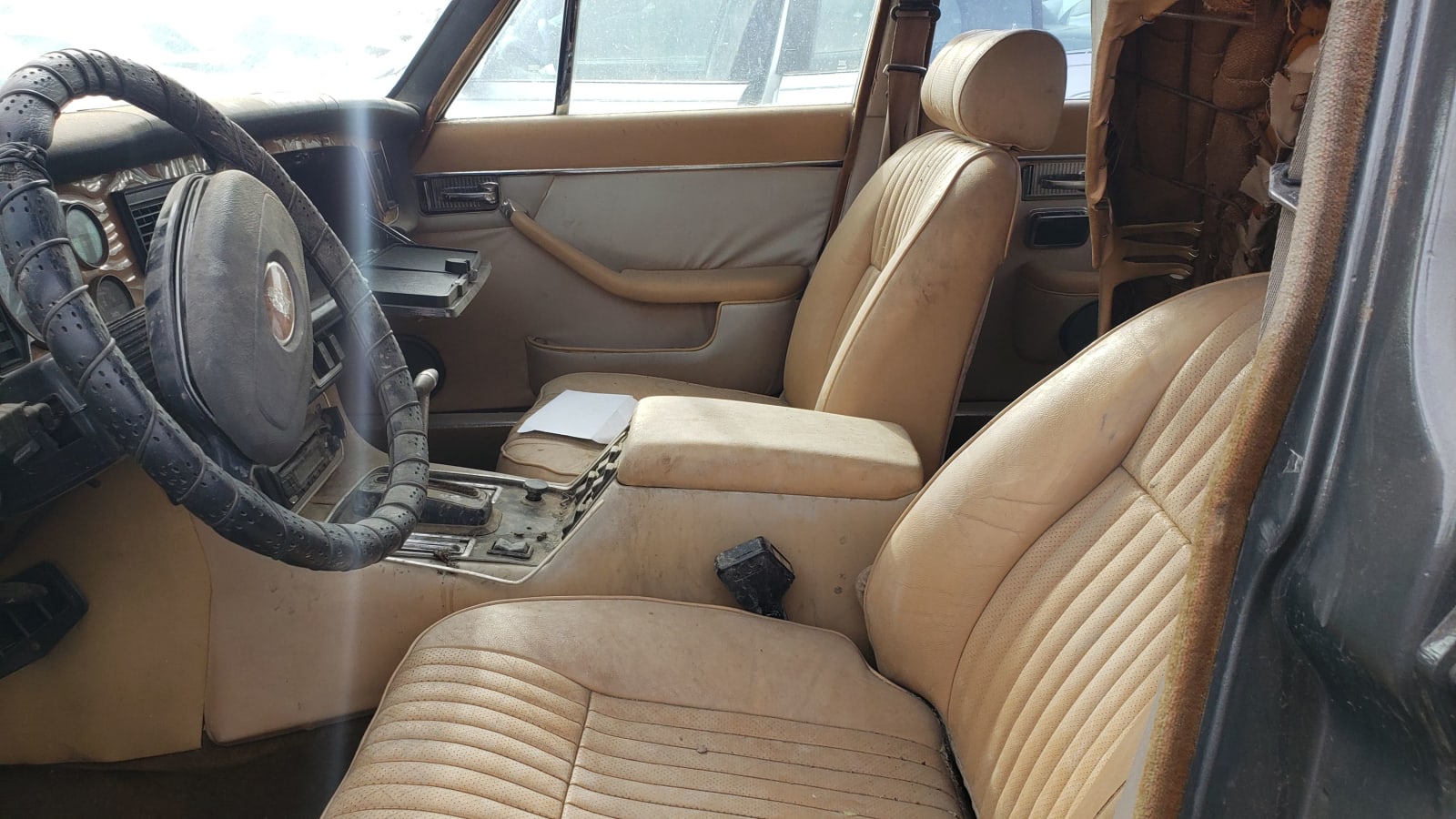
Back in the 1970s, Mercedes-Benz had a big edge over Jaguar with mechanical sophistication and build quality, granted, but Jaguar beat those Stuttgarters hands-down when it came to making a car interior feel like a billionaire’s library.
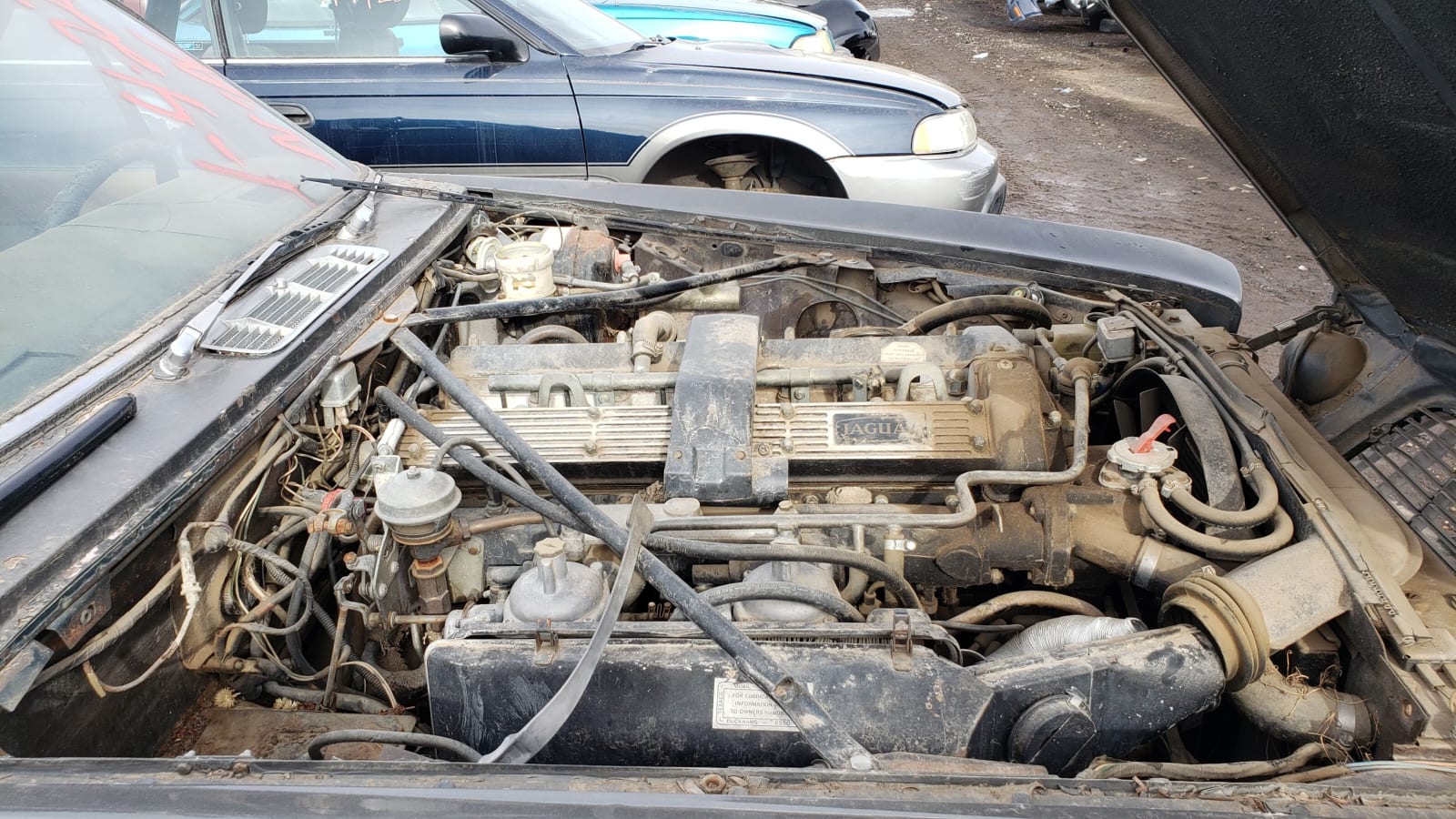
The engine is a 4.2-liter XK6 straight-six, rated at 162 horsepower and 225 pound-feet. That was respectable power for 1977, when the 425-cubic-inch (7.0-liter) V8 in the most powerful new Cadillacs made just 180 horses (and a mighty 320 pound-feet).
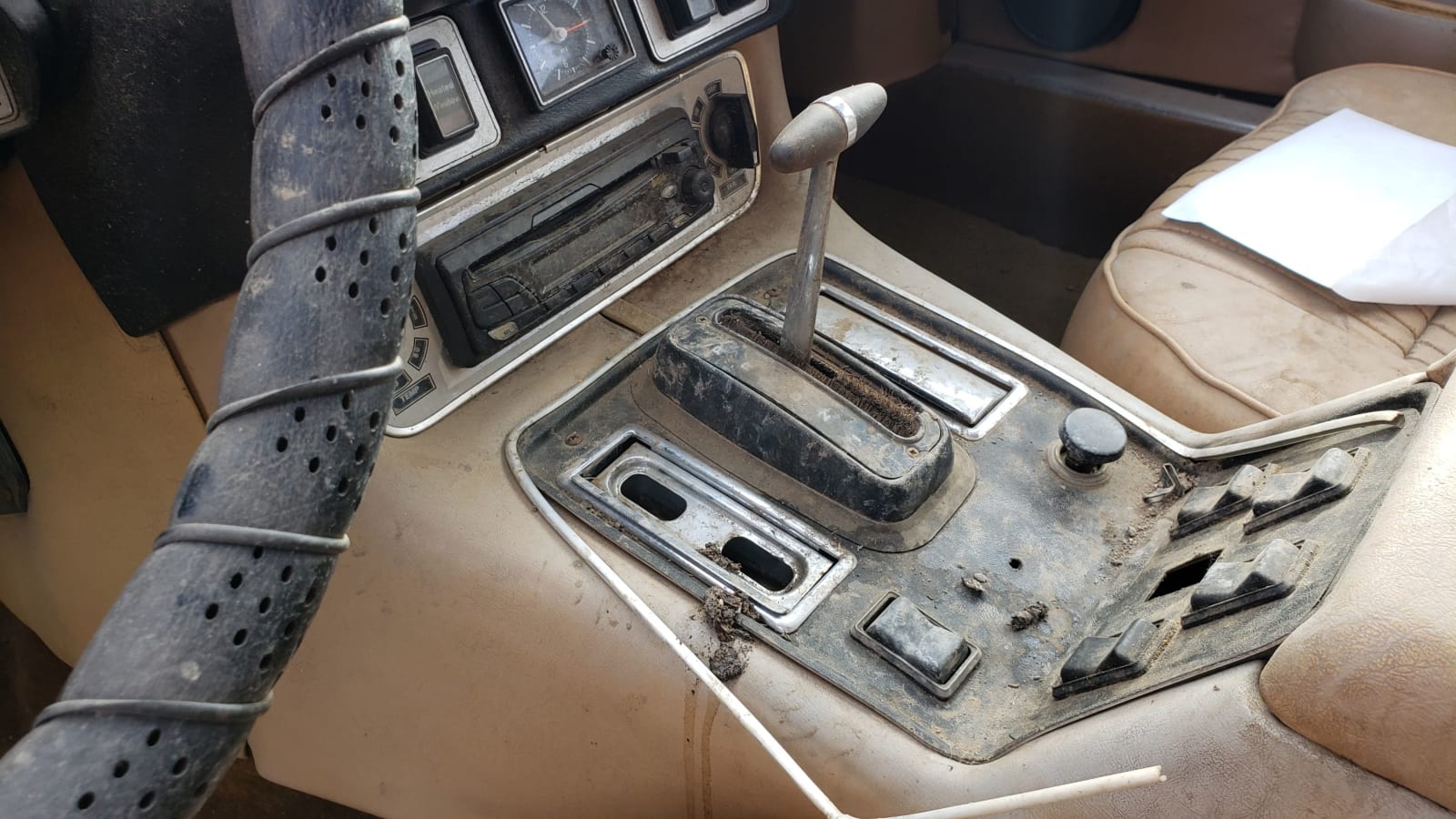
The only transmission available was a three-speed Borg-Warner automatic.
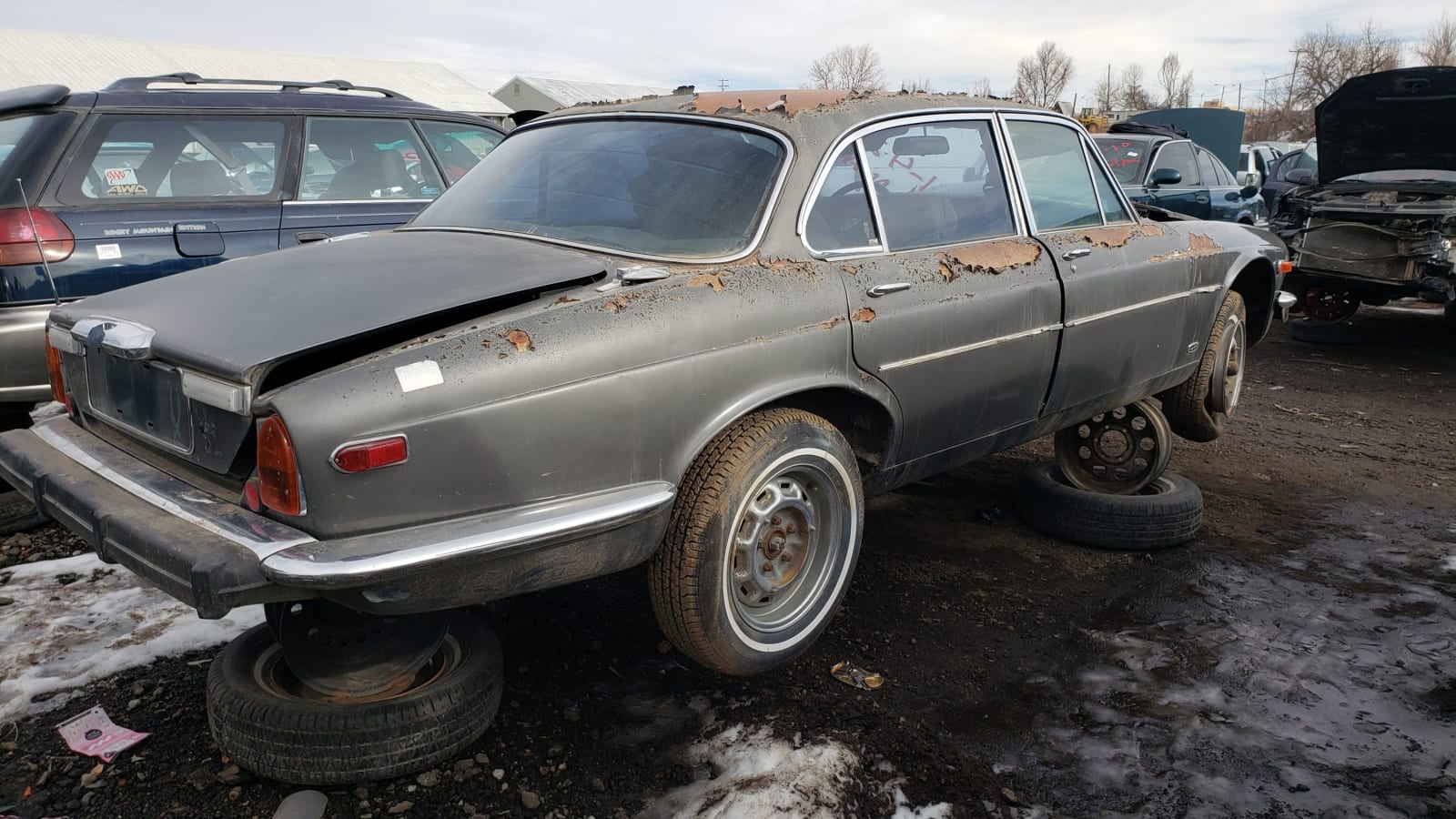
The price tag for this car was a cool $15,000, which comes to about $76,335 in 2022 dollars. The twelve-banger XJ12L saloon cost $17,250 that year ($87,785 today). A new 1977 Mercedes-Benz 280E sedan cost $16,467 ($84,800 now); it was more solid but more stolid, and it had a mere 142 horses under the hood in US-market trim. In any case, you wanted the longer-wheelbase 280ES if you needed the back-seat room of the Jag (you did, if you planned to impress everyone at the disco with the quality of your recreational pharmaceuticals), and that car listed at $19,217 ($97,795 in 2022).
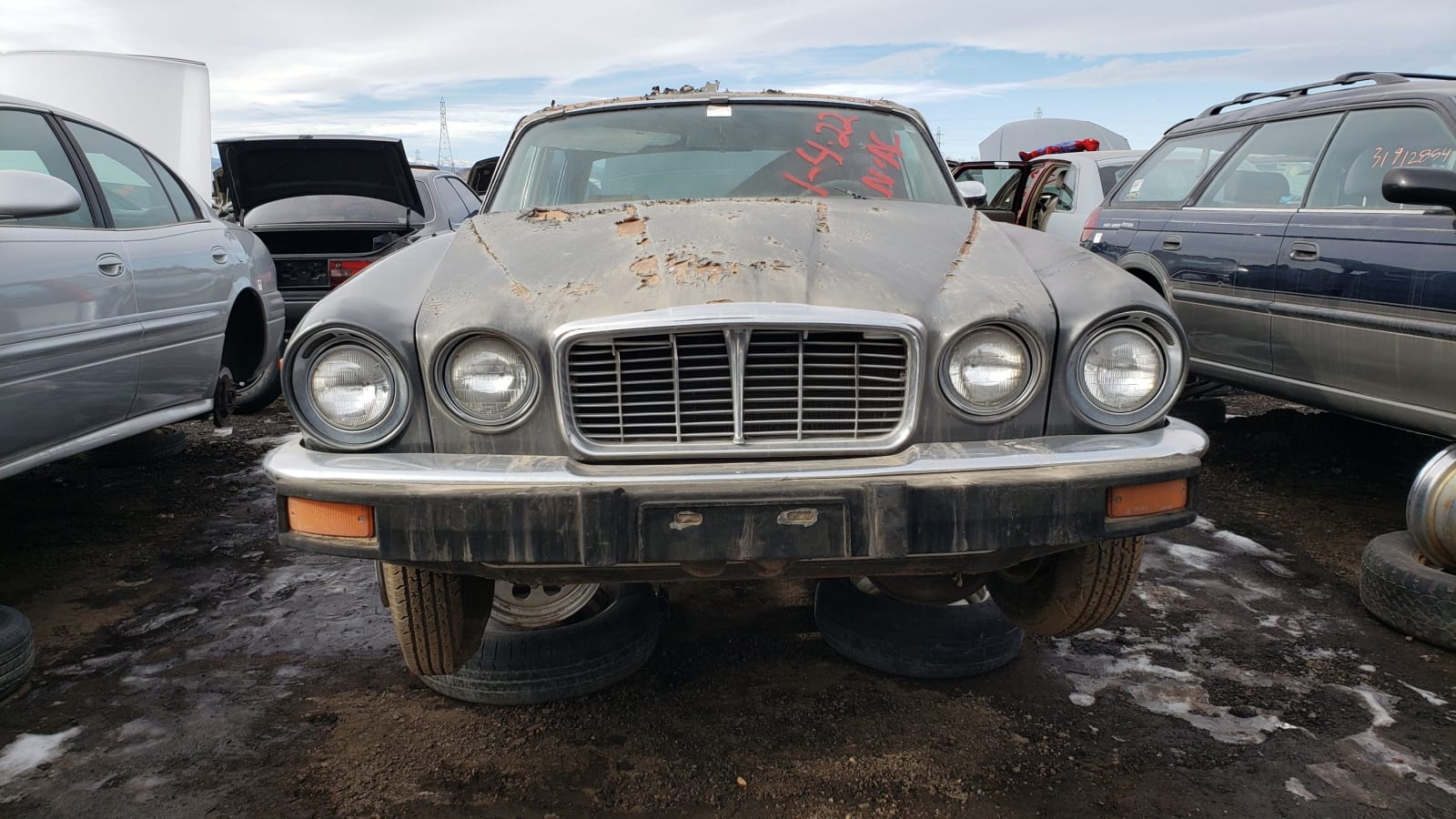
Detroit could put you on even flashier wheels in 1977, and it wouldn’t have cost you nearly as much as an XJ. How about a Lincoln Mark V, priced at just $11,396 (plus another $2,100 for the Givenchy Edition with Majestic Velour interior)?
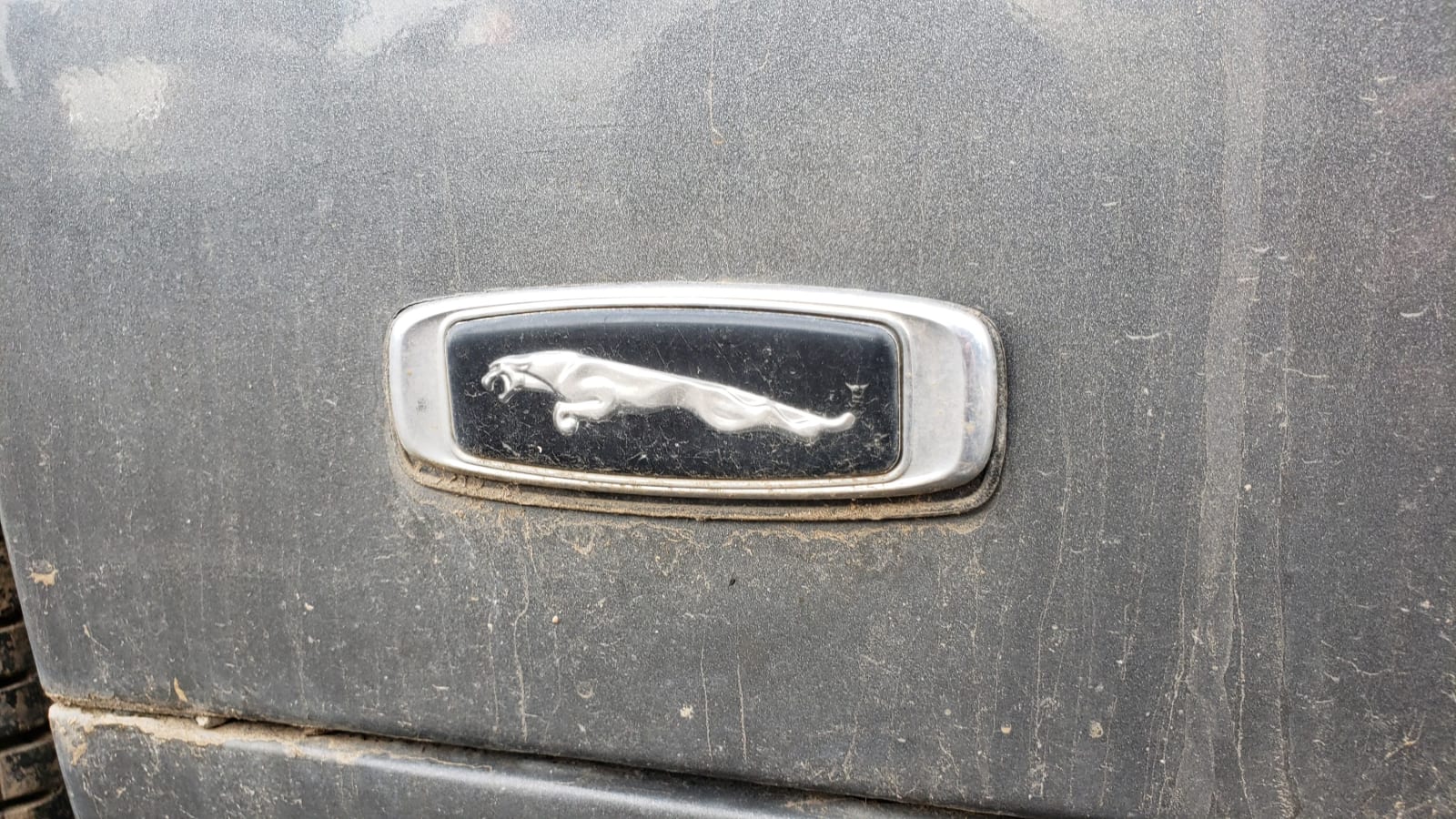
Still, there’s nothing like a genuine Jaguar.
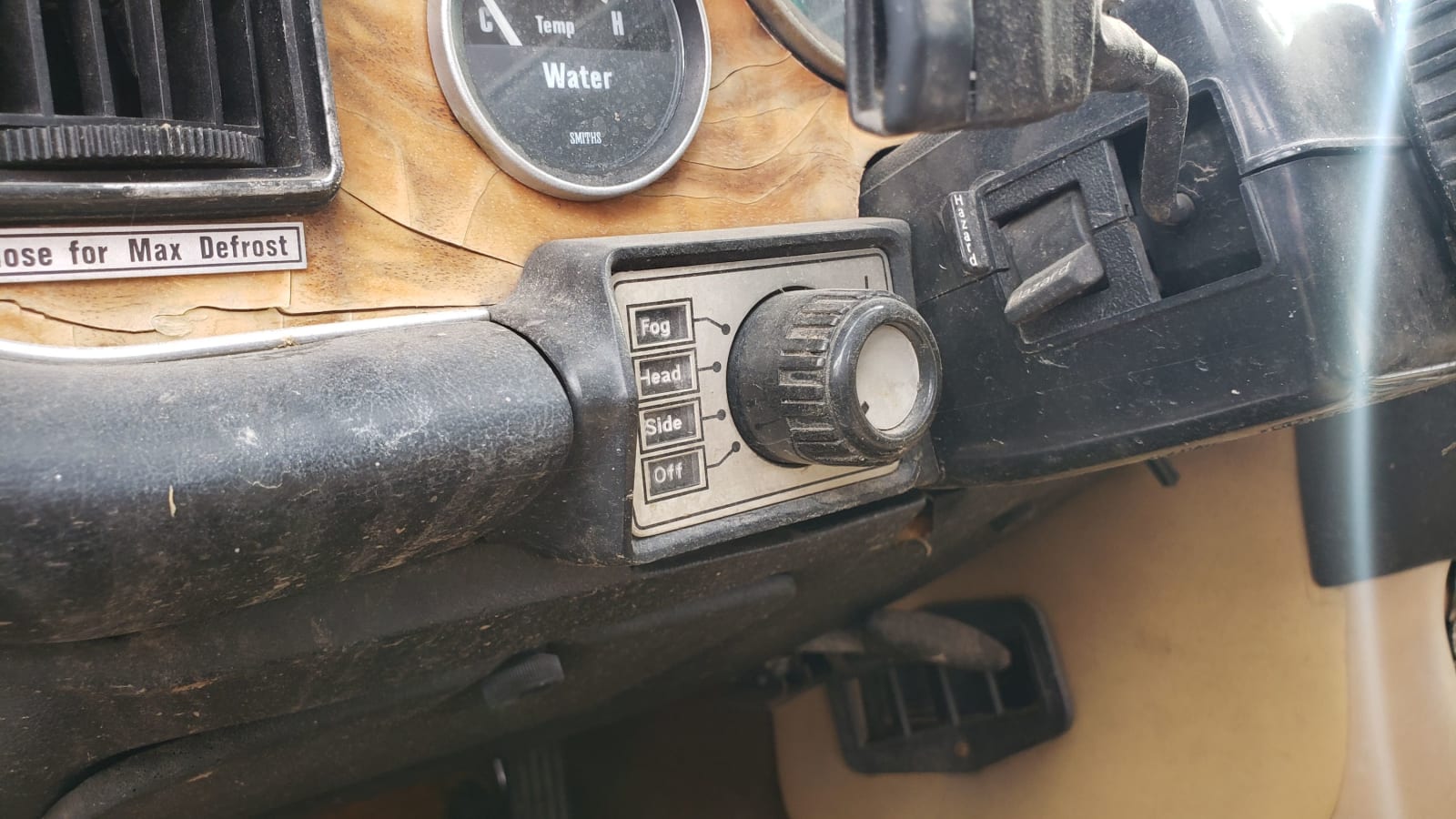
It could have been fixed up, but that wouldn’t have made much sense with nice examples going for well under ten grand.
“This car was bought the year we won the World Cup!”
Related video:
